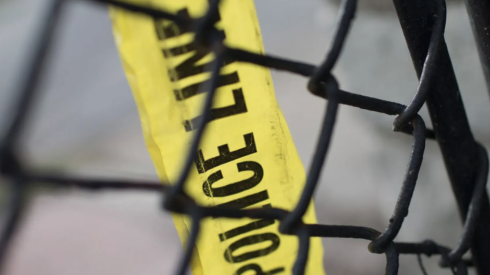Mayor Brandon Johnson has signed off on a compromise plan to raise the real estate transfer tax on high-end home sales to generate $100 million in annual revenue to combat homelessness, but in a way that will reduce the tax for homes sold for less than $1 million.
Zoning Committee Chair Carlos Ramirez-Rosa (35th), the mayor’s City Council floor leader, predicted that the 11th-hour concessions would minimize opposition from Chicago developers and guarantee City Council approval of a binding referendum on the March ballot. He also predicted overwhelming voter approval.
“Chicago voters are supportive of progressive revenue structures, particularly when they know where the funding is going to go.
“People who are purchasing homes for the first time are likely spending less than $1 million, and they will now see a decrease. So effectively, we’re asking the average Chicagoan, ‘Do you want to pay less in real estate transfer taxes?’ I think voters will overwhelmingly say ‘yes,’” Ramirez-Rosa said.
The original proposal from the Bring Chicago Home Coalition called for tripling the transfer tax on Chicago homes sold for $1 million and above — from 0.75% to 2.65% — generating $160 million in annual revenue.
Instead, Johnson signed off on what his floor leader called a “three-tiered progressive structure.”
• Properties sold for under $1 million that currently account for 94% of all sales will see a decrease in the real estate transaction tax owed. The new tax rate would be 0.60%, down from the current rate of 0.75% — a 20% cut.
• Sales of $1 million or over, but under $1.5 million, will pay a 2% tax — more than 21⁄2 times what they pay now.
• And sales of $1.5 million and higher will pay 3%, which is four times the current rate.
Ramirez-Rosa noted a home sold for $500,000 would pay $3,000 under the new structure, down from $3,750 under the current rate.
Affordable housing projects receiving city, county, state or Chicago Housing Authority subsidies would be exempt from the increase.
The concessions didn’t satisfy Jack Lavin, president of the Chicagoland Chamber of Commerce.
“We remain opposed. ... Chicago would have the second-highest real estate transfer tax if this passed, compared to competitive cities. This will deter global investors. It will impede development, union job creation, tax-base growth and small businesses,” Lavin said.
“It will come at a time when vacancy rates are high, sub-lease space available is at a high, foreclosures, return to office is still recovering. Property tax rates are up. All of this adds to the burden for the business community.”
Lincoln Park Ald. Brian Hopkins (2nd) was not on board the train, either, even as he acknowledged the tiered compromise is “less egregious” than the original version.
“I still think it’s inappropriate to impose such a significant new tax without more clear details about the spending plan,” Hopkins said.
“The claim is we’re going to spend it to help solve homelessness, which is admirable and a goal I share. But the level of detail needs to be commensurate with the amount of money that’s being taken from taxpayers. You can’t just say it’s to help the homeless and think that’s enough.”
Ramirez-Rosa said the changes were made to minimize opposition from Council members who believed $1 million was too low a benchmark for such a steep increase and to reduce the impact on the sale of three-to-six-flat buildings, a critical component of Chicago’s inventory of multifamily apartments.
The concessions are expected to reduce the amount of additional annual revenue from $160 million to roughly $100 million.
If the process goes smoothly after Tuesday’s closed-door aldermanic briefings, the binding referendum will be introduced at the Sept. 13 Council meeting and approved by the Council in October.
If a simple majority of Chicago voters then approve the binding ballot referendum in March, the Council will be asked to approve another ordinance enacting the new tax structure and establishing a special fund dedicated to addressing homelessness.
Specific allocations of revenue from the fund will be determined annually and approved by the Council.
“This is the progressive way to do it. This is the smart way to do it. This is the strongest proposal that addresses a lot of different concerns. It ensures that we are not harming those three-to-six-flat apartment buildings, and we are cutting the real estate transfer tax for the vast majority of home buyers in the city of Chicago,” Ramirez-Rosa said.
Former Mayor Lori Lightfoot campaigned on a promise to raise the real estate transfer tax on high-end home sales to create a dedicated funding source to combat homelessness but broke that promise, infuriating what was her progressive base.
Johnson would be avoiding that mistake, as the need for more revenue to combat the burgeoning problem of homelessness in Chicago is pretty much everywhere — over 100 homeless encampments, and counting.
“The number of Chicagoans experiencing homelessness has increased throughout the pandemic and in the past several years. There are so many CPS high school students experiencing homelessness. There’s no question that we need this funding,” Ramirez-Rosa said. “But the mayor always said he was committed to getting this done in a way that is collaborative and a way that addressed legitimate concerns being brought to him.”
Doug Schenkelberg, executive director of the Chicago Coalition for the Homeless, could not be reached for comment. Farzin Parang, executive director of the Building Owners and Managers Association, a group including owners of large office buildings, called the plan “bad public policy.”
Parang once again warned that raising the real estate transfer tax would have a devastating impact on office buildings that may never fully recover from a pandemic that has dropped their valuations by anywhere from 40% to 80%.
“Because of the slow return to office, interest rates, we’ve already got tens of thousands of Chicagoans, workers in our industry, whose livelihoods are at risk,” Parang said.








